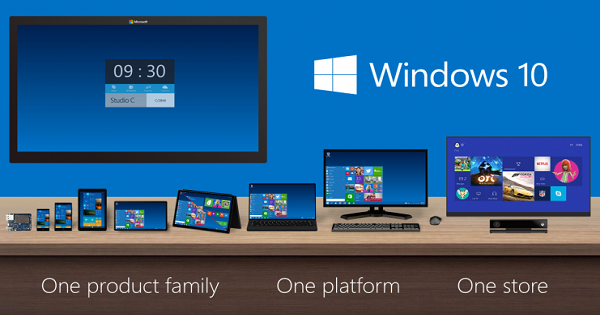Posted by : Cyber Freak
Saturday, 17 September 2011
Microsoft offered many more details about its next-generation operating system, Windows 8, to an audience of developers and invited media at its Build conference in Anaheim, California. I was present at the initial Windows 8 unveiling a few months ago, and came away impressed but disappointed.
The root of my disappointment is this: I think Microsoft has, for the first time in a long time, created a product that is truly innovative. It’s Windows Phone 7, which does not feel like an iOS photocopy (as opposed to Android and WebOS, which are very clearly inspired by the iPhone's interface). Windows Phone 7's interface design, “Metro,” offers a fundamentally different approach to a touch interface. Microsoft went its own way with Windows Phone 7 and it made me enthusiastic about the possible innovations that interface could offer on tablet devices.
But with Windows 8, Microsoft has embraced Metro while rejecting the concept that touch devices and PCs are different classes of products. There will be no “tablet edition” of Windows Phone 7, there will just be Windows 8 whether you run it on a tablet or a desktop PC or something in between.
There are a couple factors at play in Microsoft’s decisions to create a single operating system for tablets and PCs. First and foremost, this is Microsoft. The company does not believe in a post-PC world, which you might expect from the folks whose software runs on most PCs. Microsoft has a real, business reason to try and keep everyone in the Windows ecosystem, where it dominates, rather than a mobile ecosystem where it’s way behind.
As someone who covers Apple and is used to that company killing its hit products in order to transition to something even better—and as someone who works in an industry with its own challenges—I am predisposed to appreciate businesses that embrace the new rather than opting to squeeze as much money out of the old thing as possible before turning off the lights forever. So yes, my instinct is to dislike Microsoft’s PC-centric approach. I understand it, but it feels like denial.
But what if it’s not denial? Let’s give Microsoft the benefit of the doubt here, because the company may also be betting on the fact that new technologies will make the distinction between PCs and phones and tablets completely irrelevant. Maybe Microsoft did miss the smartphone and tablet waves, but there’s a third wave coming and they’re going to try to surf that one. The company is protecting the past while making a bet on the future.
If you want to travel with a tablet but also need to run a Windows app, Microsoft will oblige: plug in a keyboard and mouse and your touchscreen tablet interface vanishes, replaced by old-school Windows. Carry a tablet with you for reading a book on the bus in the morning, then plug it in to a stand at the office and it becomes your PC. Maybe even something as small as your smartphone is actually your entire computer, docking to a tablet screen, TV set, or traditional desktop setup as needed. Microsoft is also counting on millions of PC users running Windows 8 on their desktop PCs and then demanding that same familiar interface on a tablet device.
I think I understand Microsoft’s vision here, but I’m not sure I can believe it’ll work. What made the iPad successful when a decade of Windows tablets has failed was that it was a focused product that omitted features in order to keep that focus. It was absolutely not a Mac or PC, but something new that was built from start to finish as a touch-based device. Not only did that make it a consistent, easy-to-use device, but it also made it relatively cheap and energy efficient.
The Metro interface on Windows 8 looks really good. What I can’t get over is that Microsoft wants a regular PC underneath. I suppose it offends me because I am trying to see the product through an Apple lens: If Microsoft had announced that Windows 8 Tablet would not support old Windows software and would run on dedicated tablet hardware only, I would have cheered, because I think that could be a really cool product. But I can see why Microsoft won’t do that: If it does, it risks just being an also-ran. PCs are its lot, for better or worse.
- Back to Home »
- microsoft , system , windows »
- Windows 8, iOS & The Future














